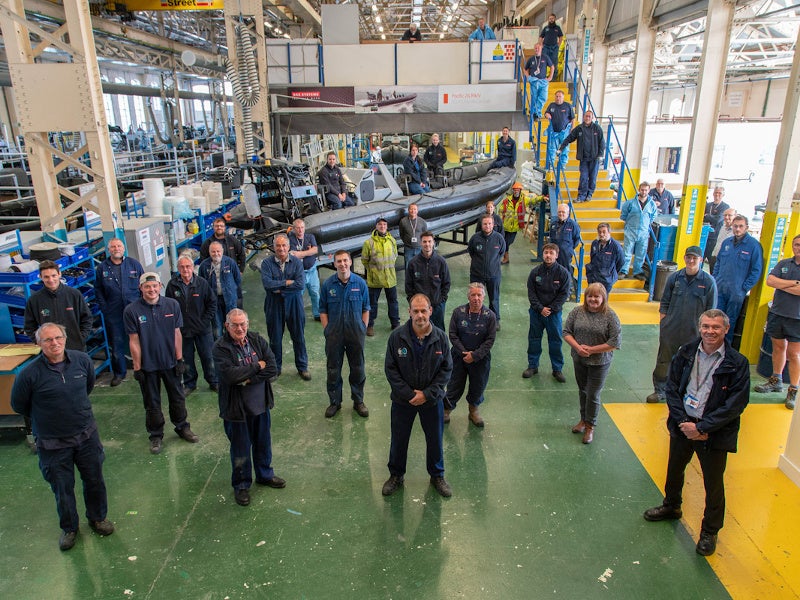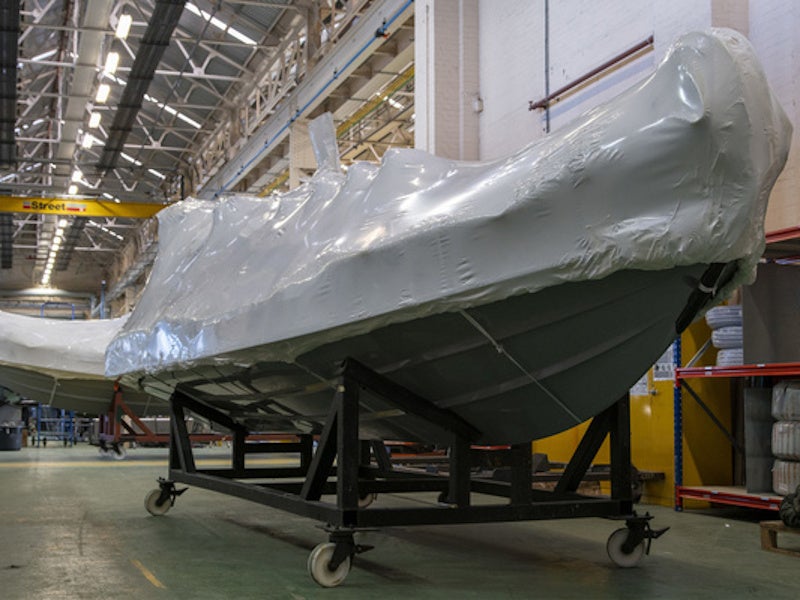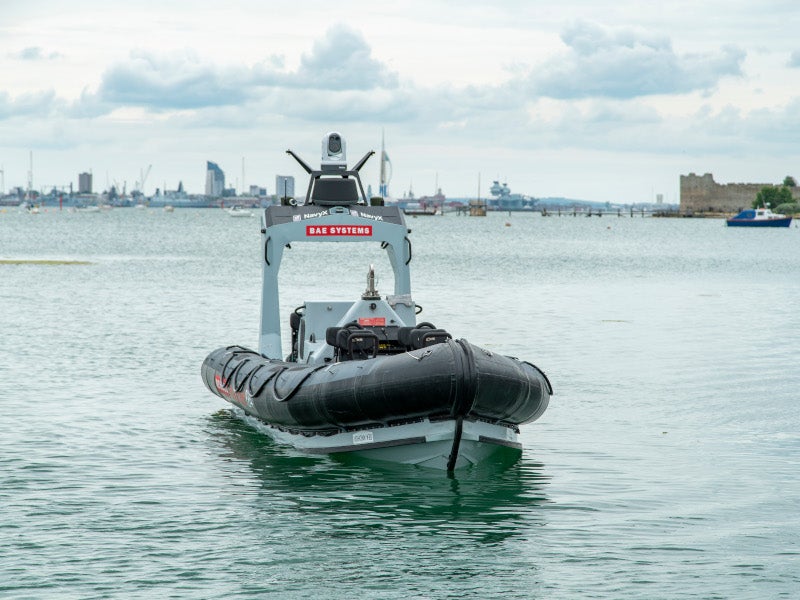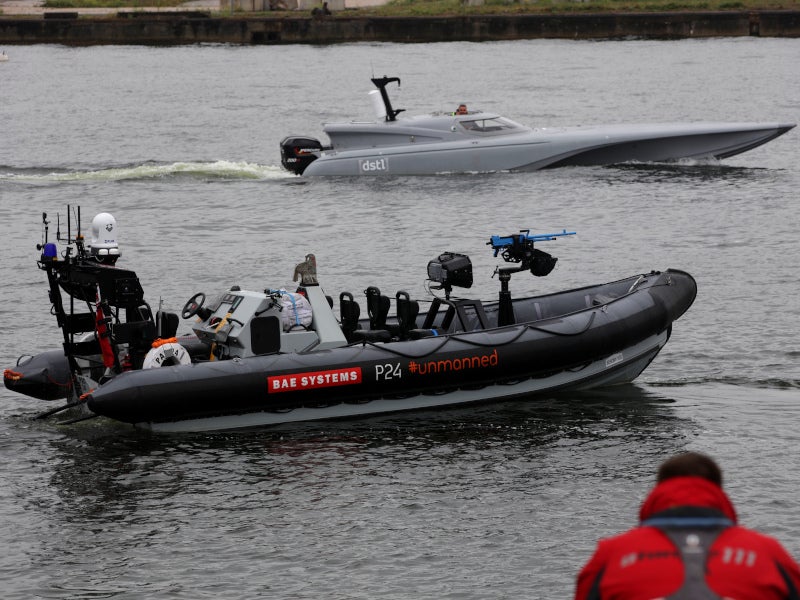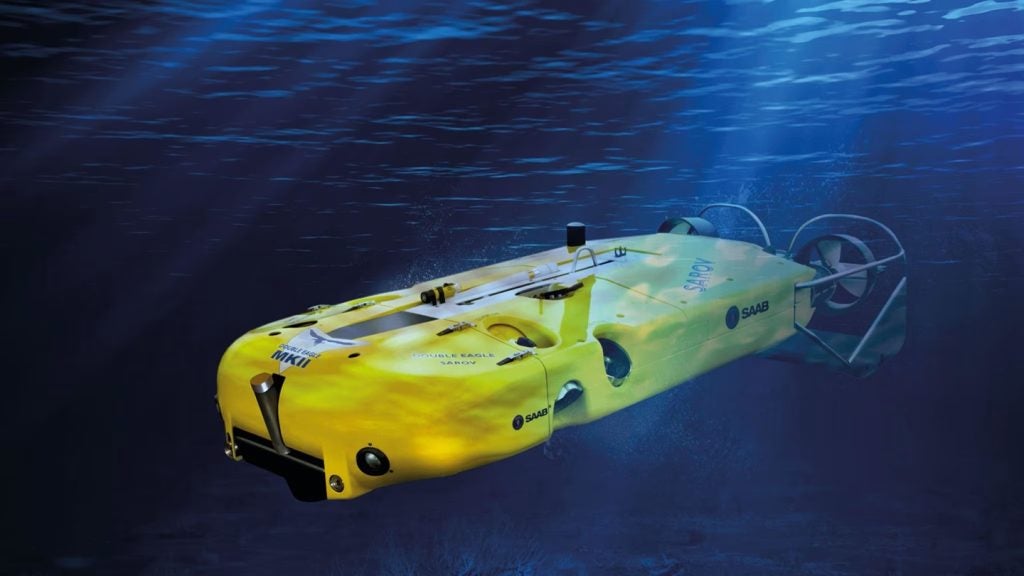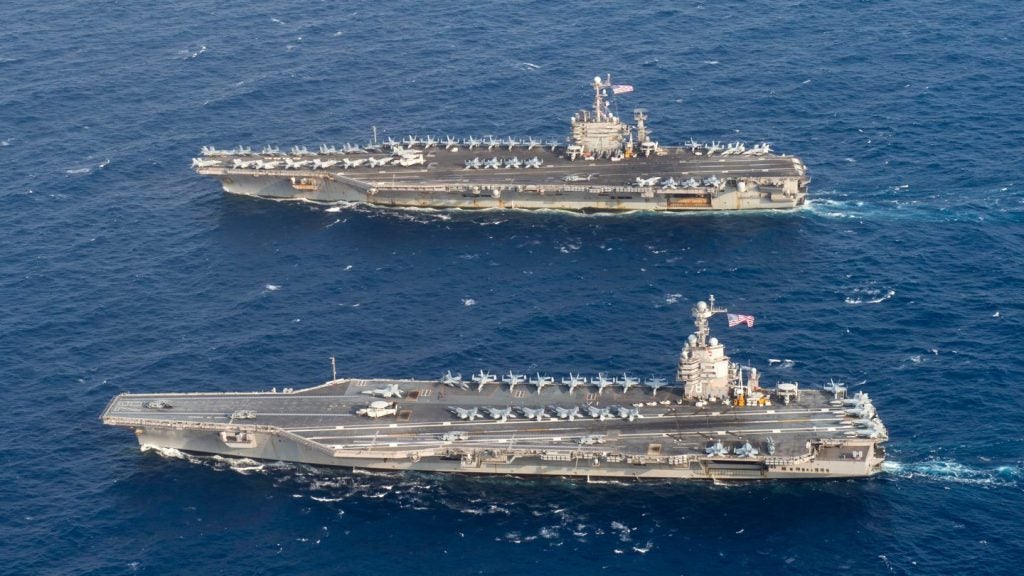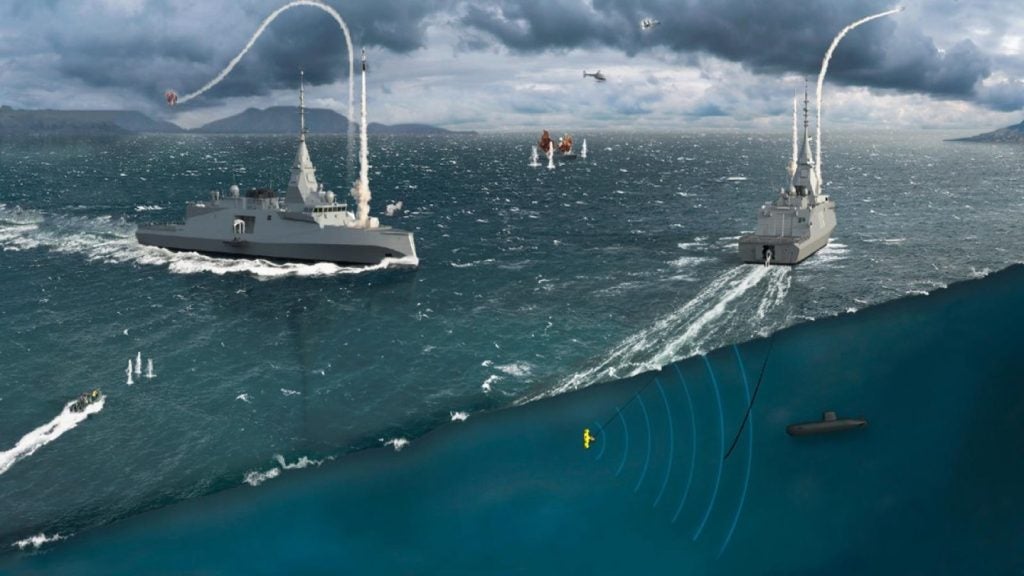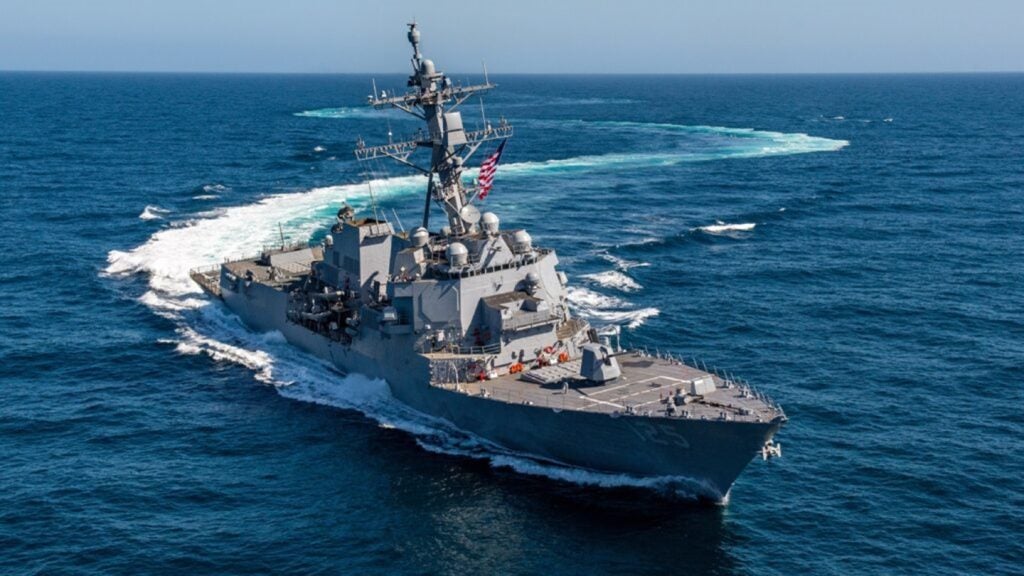The Pacific 24 (P24) rigid inflatable boat (RIB) is being manufactured by BAE Systems at its small boats manufacturing facility at Portsmouth Naval Base, UK.
The RIB is intended for supporting anti-piracy operations, border control and force protection.
The Pacific 24 RIB is extensively deployed on the Royal Navy’s surface fleet, including the UK’s new aircraft carriers HMS Queen Elizabeth and HMS Prince of Wales, Type 45 destroyers, Type 23 frigates, as well as offshore patrol vessels.
BAE Systems sold six Mark-4 versions of the Pacific 24 boats to Austal in June 2020. The boats will equip two Cape-class patrol boats being built for the Trinidad and Tobago Coast Guard.
Pacific 24 RIB development
Pacific 24 boats have been in service with the Royal Navy for more than 25 years. The latest and fourth-generation variant Mark-4 was launched in December 2015.
In December 2015, BAE Systems secured a £13.5m ($20.4m) contract from the Ministry of Defence (MoD) to build 60 Pacific 24 RIBs to provide a key capability to the Royal Navy and Royal Fleet Auxiliary.
The contract created jobs for 14 personnel and provided ten additional support roles at BAE Systems’ small vessel facility in Portsmouth dockyard. The first new-generation boat was launched in April 2016.
BAE Systems is developing a crew-less P24 RIB and the capability of the boat was tested by the UK MoD and Royal Navy, along with industry partners, by conducting a series of trials in September 2019. The boat demonstrated its capability for carrying out future missions when integrated with an active vessel.
Pacific 24 RIB design and features
The 7.8m-long P24 RIB is fitted with a control console housing instrument panel, emergency engine kill switch, electrical systems, navigation equipment and steering wheel.
The boat has an inflatable collar built from a 1,200g/m neoprene composite tube and is fitted with solid neoprene cladding, stowage pouches, lifelines, paddle stowage, single-point lifting hook, reflective patches and bow towing eye.
The navigation and communications suite on board the boat includes marine VHF, coastguard radio with DSC module, navigation lights, magnetic compass, shore supply socket on engine box.
Pacific 24 Mark-4 variant
The Mark-4 version of P24 RIB is integrated with advanced shock mitigation and propulsion systems. It also offers extra safety to the occupants by complying with rigorous safety of life at sea (SOLAS) testing procedures, including drops, slams and self-righting trials.
The boat has the maximum capacity to accommodate six passengers and two crew members. It also supports coast guard operations and has the ability to carry different loads, including stretcher patients or a different number of passengers by removing seats.
A ground plate can be installed for the radio communications system. The high-performance shock-absorbing seats reduce crew fatigue.
Pacific 24 autonomous boat
The Royal Navy launched the first crew-less P24 RIB at Trafalgar Wharf, Portsmouth, for general duties in June 2020. The boat will undergo a series of acceptance trials throughout 2020. Based on the trials, the Royal Navy will determine whether to upgrade or acquire an entire fleet.
The first prototype was controlled from HMS Argyll frigate, which was launched at the DSEI defence and security exhibition in London in September 2019. The boat will be fitted with an advanced control system and sensors for autonomous movement.
The Royal Navy is investing more than £3m ($3.74m) for the crew-less Pacific 24 boat and other autonomous small craft technology. The programme is funded partially by the Royal Navy’s Autonomous Hardware Accelerator NavyX, which aims to develop new technologies for operations on the front line.
Propulsion and performance of Pacific 24 Mark-4 RIB
The Pacific 24 Mark-4 RIB is powered by a 370hp inboard twin-turbo diesel electronic engine, integrating an inbuilt self-diagnostic technology. It is also fitted with a waterjet or stern drive unit.
The boat has a maximum speed of 38k and can be operated individually or in groups.

